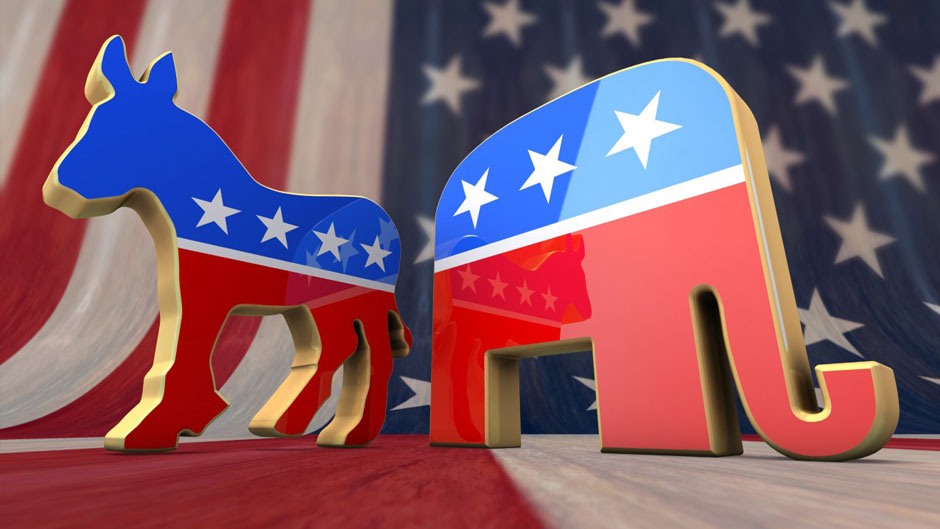For the first time since the College of Arts and Sciences’ Political Science Department began offering “The Election” course in 2004, more than 150 University of Miami students are wearing masks, sitting at least six feet apart from each other, and will listen to prominent guest speakers who will appear virtually in an 8,000-seat arena.
Amid the physical distancing measures imposed by the coronavirus pandemic, the topics in this year’s course couldn’t be more relevant: How will the pandemic affect voter turnout? Are states prepared to count millions of mail-in ballots? Will President Donald Trump accept the results of the election?
“I like to call this class ‘The Big Election Course,’ because we teach a large group of students and welcome big-name guests,” said Joseph Uscinski, an associate professor of political science who co-teaches the class with professor Casey Klofstad and political consultant Fernand Amandi of Bendixen & Amandi International.
To accommodate and assure the safety of the undergraduate and graduate students enrolled in the class, it is meeting once a week at the Watsco Center, the multipurpose venue on the Coral Gables Campus that has hosted a number of key political events. Among them: the 2004 general election debate between President George W. Bush and Democratic challenger John Kerry, and, more recently, the 2016 debate between five of the GOP candidates, including Trump, who were vying to succeed President Barack Obama.
“The Political Science Department is very honored to be able to host this course every two to four years for the entire UM community,” said Klofstad. “The video conferencing technology added to our classrooms, in response to COVID-19, will allow us to reach even further into that community, including inviting alumni to attend class via Zoom.”
When Klofstad and Uscinski taught the class in 2016, they hosted two watch parties on campus for students—one for a televised debate between Trump, the Republican nominee, and the Democratic hopeful, former first lady Hillary Clinton, and another on Election Night, when Clinton won the popular vote, but Trump won where it most mattered: in the Electoral College.
Previous guest speakers have included 2012 presidential candidate Herman Cain, who passed away last week from COVID-19; United Nations Ambassador Mark Wallace; journalist Bernie Goldberg; Commerce Secretary Carlos Gutierrez; U.S. Representative and former University of Miami President Donna Shalala; and former U.S. representatives Ileana Ros-Lehtinen and Carlos Curbelo.
Although Klofstad and Uscinski won’t reveal this year’s list of guest speakers, they said the names are well known in today’s political arena. “We want to surprise the students,” said Uscinski.
“Typically for this course we feature guest speakers in person, which will be harder to do given COVID-19,” added Klofstad. “We will use these constraints, however, as an opportunity to work with a larger pool of even more prominent speakers who can join us via video conference.”
In addition to the possible record turnout for the presidential election, and how the pandemic will affect whether voters choose to vote in person or by mail, Uscinski said, the course will “discuss the factors that matter most in how elections turn out, from partisanship to ideology, and the economy. We are going to cut through the hype and get to what really matters.”
And how states manage voter turnout and mail-in ballots really matters now. “Florida has had numerous problems with its elections in the past,” Uscinski noted. “Those problems will only be made worse by the pandemic.”
Klofstad added that the “cornerstone of a democracy is free and fair access to the vote. One way to safeguard this, given the pandemic, is voting by mail. Efforts are being made to expand this practice in Florida, but the jury is still out on whether this infrastructure will be in place in time for Election Day 2020.”

